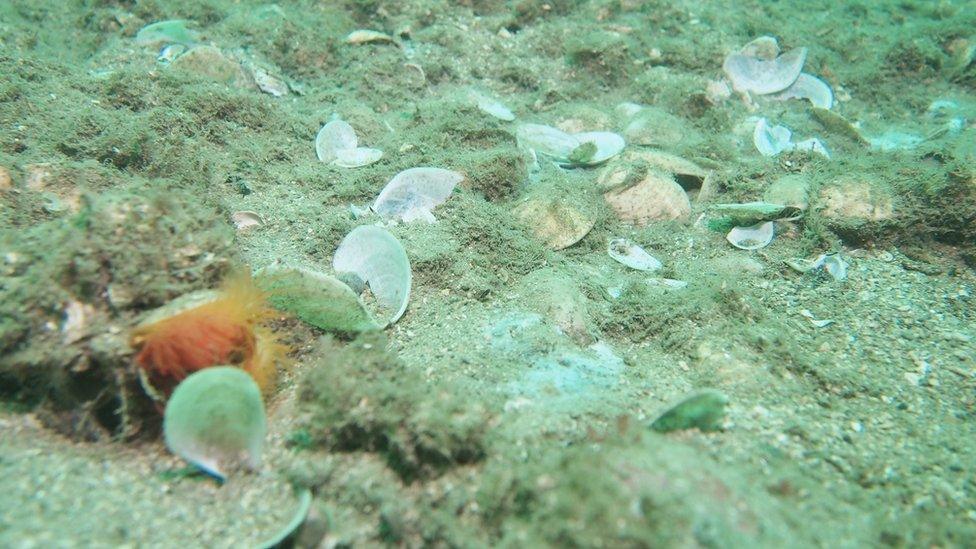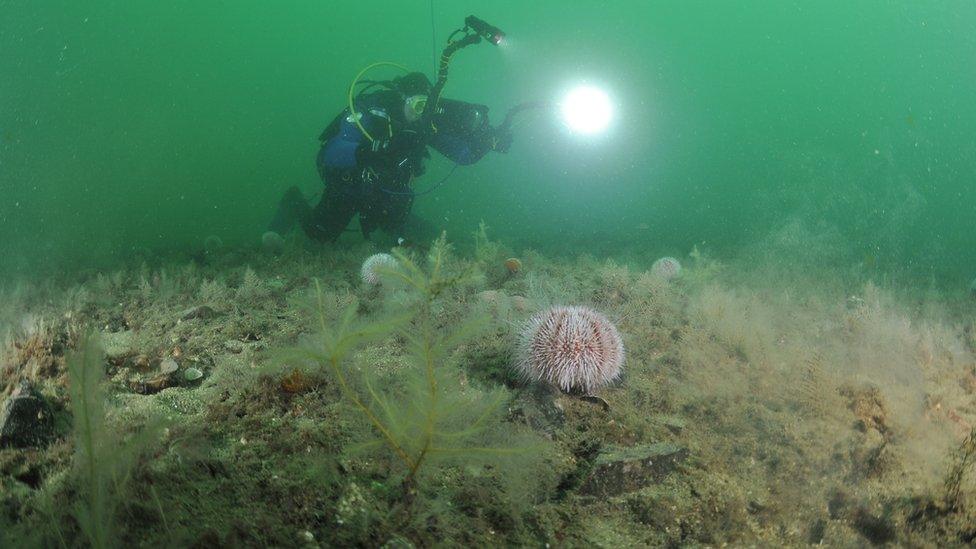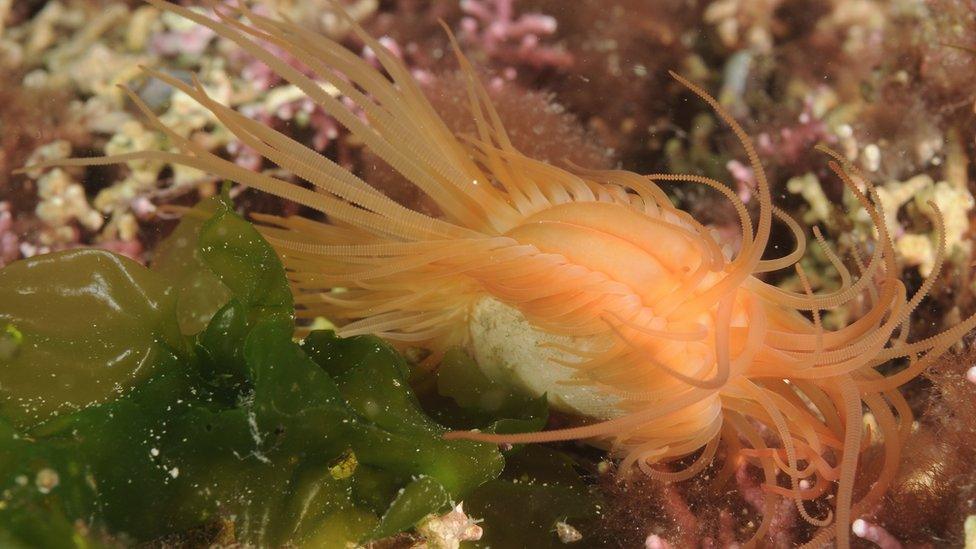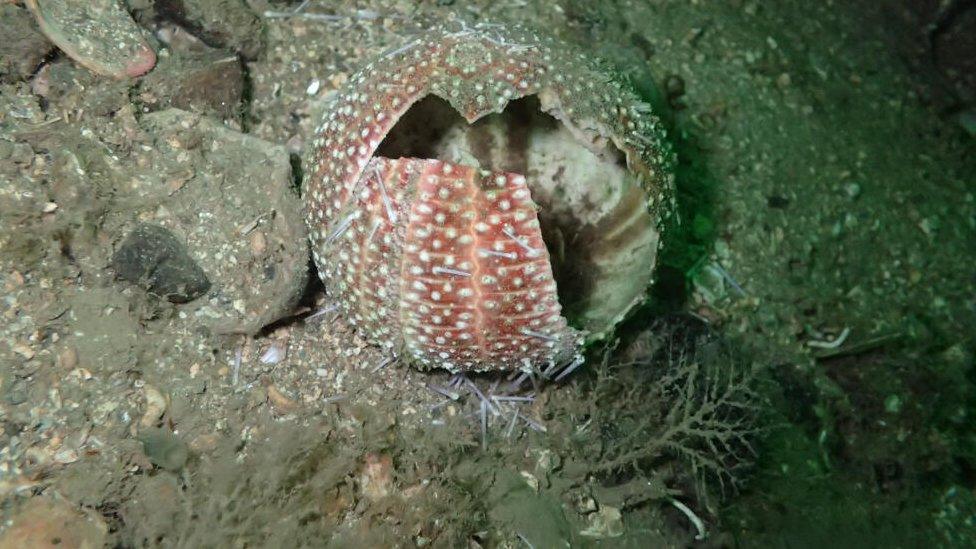Damaged flame shell reef declared protected area
- Published

The investigation found the damage to the reef was consistent with scallop dredging
Scallop fishermen have been banned from a highland loch after a rare reef was damaged by dredging, BBC Scotland has learned.
The emergency move by the environment secretary follows an investigation into damage caused to the flame shell reef in Loch Carron near Plockton.
An environmental group has described it as "too little, too late".
The inquiry confirmed that the damage was consistent with the impact of scallop dredging.
But Scottish Natural Heritage (SNH), which conducted the investigation, said there was a "viable prospect of recovery" because part of the bed had survived.
The Loch Carron reef was dredged twice by scallop fisherman in April.
Marine conservationists said the reef was "devastated" by the dredging and could take decades to recover.
SNH sent divers down to the reef to assess and photograph the damage.
The site has now been designated as a Marine Protected Area which prevents further dredging.

SNH sent divers down to the reef to assess the damage
Environment Secretary Roseanna Cunningham said: "We take our duty to protect Scotland's rich marine environment extremely seriously and recognise the importance of safeguarding vulnerable habitats like flame shell beds.
"By introducing a Marine Protected Area and putting in place a ban on dredging we hope to ensure the recovery of the flame shell beds in Loch Carron.
"While we recognise there are concerns around scallop dredging in coastal waters, we must balance environmental concerns with the need for legitimate and sustainable fishing."
The dredger which caused the damage was operating legally when the damage was caused.
But conservationists said it represented a "complete failure" of inshore fishery management.

SNH said part of the bed had survived
Nick Underdown, from the campaign group Open Seas, said: "Whilst we welcome the move to protect the parts of flame shell reef that remain in Loch Carron, this is clearly too little, too late.
"The Scottish government are glossing over a much broader problem of scallop dredging impact throughout our coastal waters. They haven't even taken steps to protect flame shells in other areas where they remain intact.
"Incredibly this includes places where they exist in the Small Isles Marine Protected Area - the waters around Rum which still have no protection at all.
"The Scottish government's management of our inshore waters is prehistoric, piecemeal and it's hurting our rural economy too."
'Jewels of Scotland's seas'
The group said there were now growing calls for a ban on scallop dredging less than three miles from the shore.
The Scottish government said it would now look at whether other sensitive areas required additional protection.
WWF Scotland's acting director Dr Sam Gardner said the government's action was welcomed.
Dr Gardner said: "This recent incident clearly shows the importance of completing the Marine Protected Area (MPA) network and ensuring the jewels of Scotland's seas are there for future generations to enjoy."
Calum Duncan, of the Marine Conservation Society, said: "Whilst this loophole of inshore fisheries management led to damage, we are hopeful that there is sufficient healthy reef left to return Loch Carron to its natural state, given time."
Dr Richard Luxmoore, senior nature conservation adviser at the National Trust for Scotland, has called on the government to protect all of Scotland's inshore waters from scallop dredging.
- Published24 April 2017
